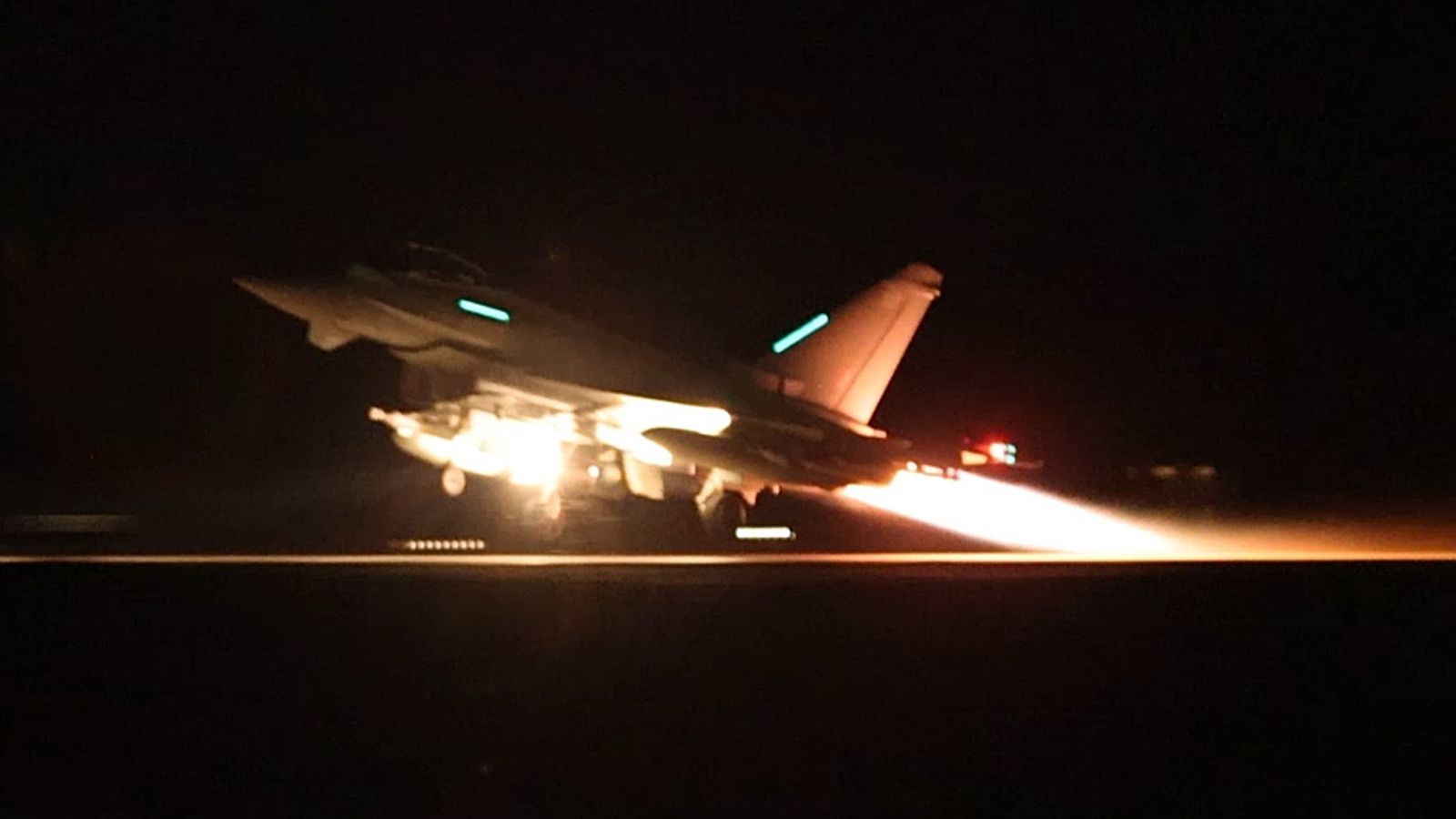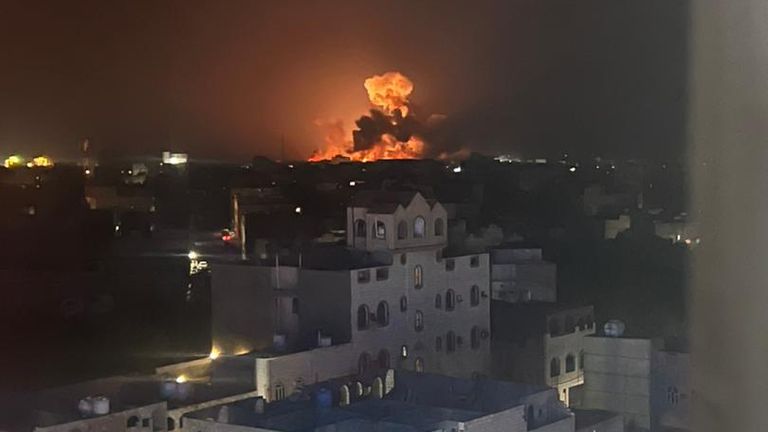A barrage of British and American air and naval strikes against Iranian-backed Houthis in Yemen is a calculated escalation to deter threats – but it could yet trigger a regional war.
The key test will be how the militants and their arch sponsor, Tehran, respond. The Houthis were quick to claim they would retaliate against US and UK warships in the Red Sea.
Any major counterattack could push the Western allies into direct confrontation with Iran, something both sides have said they want to avoid.
But this is already the most serious expansion of violence in the region since Israel launched its war against Hamas in Gaza on 7 October. It significantly increases the risk of miscalculation, which could lead to uncontrolled escalation.
Middle East crisis – latest: US and UK ‘launch strikes against Houthi targets’
Rishi Sunak, the British prime minister, described the intervention on Thursday night as “limited, necessary and proportionate action in self-defence”.
Four Royal Air Force Typhoon jets took part, along with US warplanes, warships and a submarine, armed with precision-guided missiles and bombs. Support was also offered by Australia, Bahrain, Canada and the Netherlands.
The UK said its aircraft used Paveway IV bombs against two Houthi facilities.
One site, in north-west Yemen, called Bani had been used to launch reconnaissance and attack drones, while the other, at an airfield at Abbs, had been used to fire cruise missiles and drones over the Red Sea, according to a statement from the Ministry of Defence.
“Several key targets at the airfield were identified and prosecuted by our aircraft,” it said.
US President Joe Biden warned of more to follow if the threats to global shipping persist.
Analysis:
US and UK can’t allow one of the busiest shipping lanes to become the Wild West
“I will not hesitate to direct further measures to protect our people and the free flow of international commerce as necessary,” he said.
The night raid against Yemen had been inevitable ever since the Houthis, which control much of the country, defied a warning issued on 3 January by the UK, the US and 12 other countries to stop attacking ships in the Red Sea.
The group, armed by Iran, started targeting ships linked to Israel in November in protest at the war in Gaza, vowing to keep disrupting maritime traffic until the conflict ends.
They launched their biggest missile and drone strike to-date just days after the ultimatum to cease fire.
Such defiance meant a failure to respond would have made the US-led coalition of allies look weak and their threats meaningless.
Washington learnt to its cost the danger of allowing an enemy to cross a red line and then fail to make them pay the price after Barak Obama, as president, opted against a military intervention against Syria after its leader used chemical weapons against his people in 2013.
Instead, Russia subsequently mobilised military forces in support of President Bashar al-Assad, bolstering his efforts to crush an internal uprising. The Syrian dictator remains in power and Moscow has grown its footprint and presence in the region.
With Yemen, the decision to attack in a region already teetering on the brink of wider conflict amid Israel’s war in Gaza is a high-risk balancing act.
Hit the Houthis too hard and their supporters, most notably Iran, would have to strike back more significantly.
Yet, if the intervention is not strong enough, it will fail sufficiently to degrade Houthi military capability and not deter further attacks against international shipping.
Doing nothing, though, was clearly not an option.

